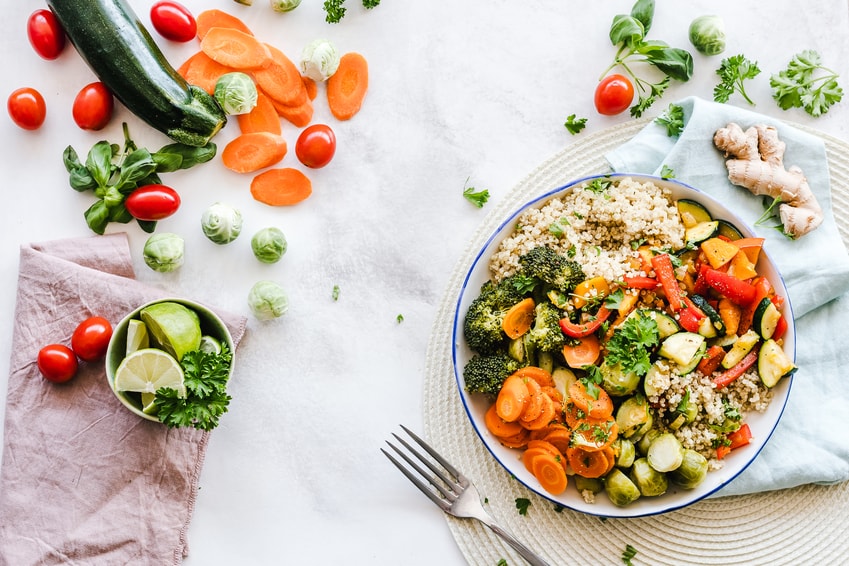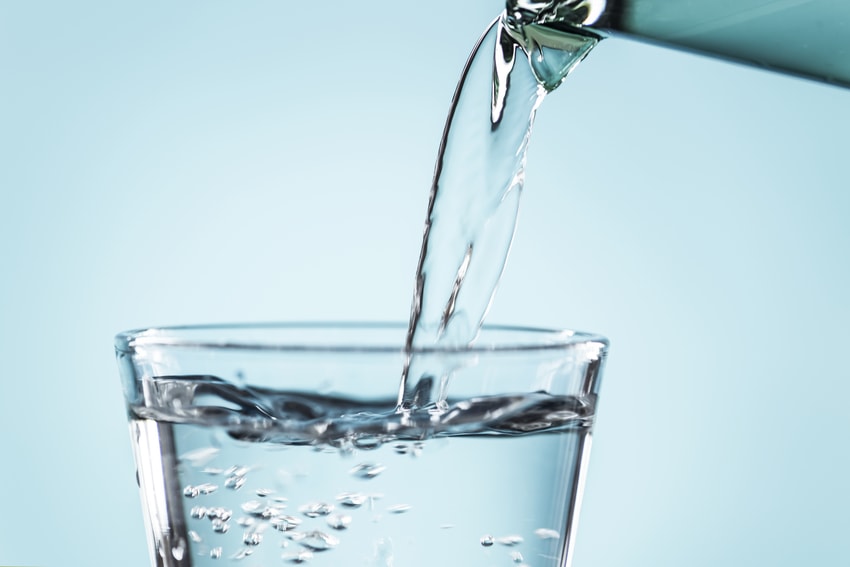In your golden years, it is important to eat well and maintain a healthy diet. As you age, your body goes through many changes, requiring adjustments to your lifestyle and habits. Members of the elderly community often struggle with certain medical conditions such as diabetes, high blood pressure, and heart disease, all which can be helped with an improved diet and exercise. Seniors above the age of 65 are especially at risk for heart disease and strokes, and should be mindful of their blood pressure levels as well as their cholesterol. It’s easy to get comfortable with old habits and not pursue any changes in your diet. However, even taking minor steps to get healthy can make a major difference in energy levels, in how you feel, and in long-term health. Here are some tips for seniors to get started on healthy eating habits!
1. Cut Out The Cholesterol
If you’re a senior who is consistently hearing from your doctor that your cholesterol levels are too high, it’s time to make a change. We may joke about the texture of that awful soy bacon, but the alternative could be a lot worse. High cholesterol levels can increase the chances of having a heart attack, a stroke, or life-threatening conditions. There are two types of cholesterol: HDL, which is considered the “good cholesterol”, and LDL, which is considered the “bad cholesterol.”
LDL cholesterol can build up over time and clog your arteries, increasing the chances of a serious heart attack. Therefore, it is important to maintain a low level of LDL cholesterol. This means you should avoid foods that have high levels of LDL cholesterol, saturated fat, and trans fat.
Foods to avoid:
- Fatty meats such as bacon and sausage
- Butter, hard margarines, lard
- Full fat cheeses, yogurt, and milk
- Packaged foods such as cookies, donuts, and cakes
- Processed foods such as chips and buttered popcorn
- Fried foods
On the other hand, foods that increase your HDL cholesterol levels are good to include in your diet. A good level of HDL cholesterol can help keep excess unhealthy cholesterol at bay and lower your risk of heart disease, heart attacks, and strokes. However, keep in mind that moderation is key.

Foods that can increase HDL cholesterol levels:
- Avocado
- Nuts
- Soy and soy-based products
- Extra virgin olive oil
- Flax seeds and chia seeds
- Fatty fish such as salmon and mackerel
- Beans and legumes
2. Eliminate All Transfats
You may have heard of the transfat controversy and how many regions around the world (such as Canada) have banned the use of artificial transfats. Transfats are considered the worst type of fat because it raises your bad LDL cholesterol while decreasing your good HDL cholesterol. It increases your chances of strokes and heart attacks as well as type 2 diabetes. Many states such as New York and California have created laws to reduce public consumption of transfats because of its unhealthy side effects. Transfats are typically found fried foods or in packaged food products such as frozen biscuits, packaged cakes and cookies, margarine, and frosting. However, transfat is also a naturally-occuring fat in foods such as fatty meats such as lamb and beef, as well as full-fat dairy products. To avoid transfat and keep its levels in check, avoid eating unhealthy fried foods and highly-processed, packaged foods.
3. Eat More Leafy Greens
Studies have shown a strong correlation between eating dark, leafy greens and being cognitive healthy. It is highly recommended that seniors incorporate dark greens into their daily diet because of how nutrient-dense they are. Leafy greens such as spinach, kale, rainbow chard, and collard greens contain a large variety of vitamins and minerals and are highly beneficial to the body. For example, a single cup of kale can provide over 650% of the daily value of Vitamin K, which helps blood coagulation and protein synthesis. Collard greens are high in Vitamin A, which is an antioxidant protecting eye health. Dark greens also have a high level of minerals such as calcium, manganese, potassium, and magnesium, all which your body needs to function at optimal performance. Leafy greens can be incorporated into a daily meal by eating a simple salad. You can even get creative and blend the greens into a morning fruit smoothie, which will provide you your daily serving of greens and serve as a nutrient-dense breakfast.
4. Fruit for dessert
One of the hardest changes to make for any person with a sweet-tooth is switching out dessert. We highly encourage our seniors, especially those who struggle with diabetes, to lower their intake of sugary, processed desserts, and replace it with fruit instead. Aside from diabetes, many seniors also suffer from digestive problems such as constipation. Increasing your fruit intake will provide enough fiber to improve your digestive health. For those who have diabetes, some fruits will have to eaten in measured portions because of its high glycemic index. In general, replacing dessert with fruit is an excellent way to cut back on your processed sugar intake, meet your daily fiber needs, and can improve your overall health. Instead of a slice of overly-sweetened apple pie, you can make your own stewed cinnamon apples or apple sauce. Or create a fruit salad consisting of mixed berries, bananas, and slices of apples. Choosing fruit in your daily meals will help you improve your overall health.

5. Drink more water
A common health concern among seniors is dehydration, which can be a cause of secondary issues such as urinary tract infection, low blood pressure, and kidney stones. It’s important to have at least 8 to 10 glasses of water every day, especially if on medication. Since at least 60% of the body is made of water, the body needs an adequate intake in order to function at its prime levels. Water lubricates the joints, and without enough of it, dehydration can cause the body to have joint pain. Drinking enough water will also help the kidneys function properly as it helps regulate and filter fluids in your body. For a senior with an active lifestyle, drinking water with electrolytes is important. When working out or exercising, the body need to be replenished with minerals since the body will sweat. Other than water, seniors can also drink other fluids such as juices, soups, and milk to keep the body hydrated.
The journey to a healthy diet is not always easy, but even with small changes, you’ll be able to find a good compromise that will satisfy your appetite as well as maintain your overall health. Incorporate these 5 tips into your daily diet and you’ll find yourself on your way to healthy habits in no time! Senior Care Center is here to help you and your senior loved ones live your best life today! Eat healthy and feel great!




